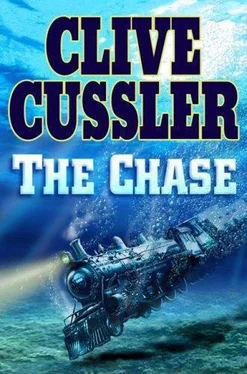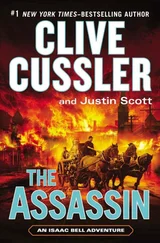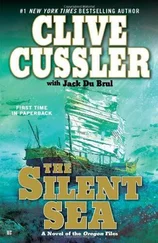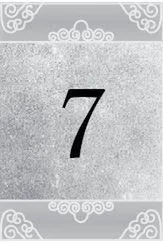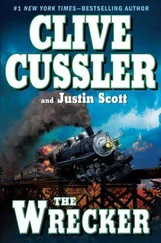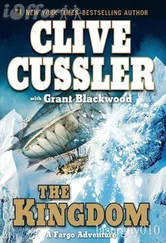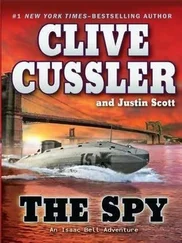CROMWELL WAS right about one thing. Margaret walked out of the police department less than thirty minutes after she was escorted there by two Van Dorn agents. Cromwell’s attorneys were already there arranging bond when she arrived. Even her chauffeur was on hand to drive her home, waiting in the Rolls-Royce out front, parked in a zone where no vehicle was allowed. A court magistrate miraculously appeared to sign the necessary release papers. It seemed to a reporter, who happened to be present covering a burglary case, that Margaret’s arrest and almost-instant release were a staged formality.
Meanwhile, Bronson and his agents had driven the ambulance carrying Cromwell onto the ferry that took them across the bay to Marin County. After moving off the dock, they drove to the state prison at San Quentin. As Bronson had claimed, the warden was very cooperative and even proud to have the famous Butcher Bandit in his prison until Bell and Bronson could orchestrate an arraignment.
After Bell left the telegraph office, he walked to Cromwell’s bank. He took the elevator up to the main office and approached Marion’s desk. “Get your hat,” he said without preamble in a no-nonsense tone. “You’re taking the rest of the day off.”
She faltered, taken completely off balance by his sudden appearance after three days. Her sensual feelings toward him came flooding back. She could see that there was no arguing with him, yet she said, “I just can’t leave when I feel like it. I could lose my job.”
“Your job is already lost. Your boss is behind bars.” He walked around her desk and pulled her chair out so she could stand.
She rose slowly and stared at him, dazed. “What are you saying?”
“The show is over. I’m holding Cromwell until we obtain the necessary warrant for his arrest and documents for an indictment.”
Almost as if she were moving in a fog, she retrieved her hat and purse from a cabinet behind her desk and then stood there unsure of what else to do. Her eyes slipped away and she stared hesitantly at the floor, disbelieving. She had never thought it possible that Jacob Cromwell, regardless of his crimes, was vulnerable.
Bell had seen Marion’s cheeks blush before and he was always taken by the demure reaction. He took her hat from her fingers and placed it on her head at a jaunty angle. “I like that,” he said, laughing.
“Well, I don’t,” she said with womanly irritation in her voice as she straightened the hat to its proper position on her lovely head of hair. “Where are you taking me?”
“Down to the beach, where we can walk in the sand and have a long talk about recent events.”
“Are we taking your fancy automobile?”
She was surprised at the pained look that crossed his face. “I’m afraid we won’t be taking it anywhere anytime soon.”
CONSTRUCTION ON SAN QUENTIN PRISON BEGAN auspiciously on Bastille Day, July 14, 1852. Why it was later named after a notorious inmate serving time for murder whose name was Miguel Quentin is anybody’s guess. The term San is Spanish for male saint. Quentin was no saint, but his name stuck, and the prison became known as San Quentin.
The oldest state prison in California, it held its first execution in 1893 by hanging Jose Gabriel for murdering an aged couple he worked for. Women were also confined there, in a separate building. By 1906, over a hundred prisoners had died behind the prison walls, from inmate murders to suicides to death from natural causes. They were buried in the cemetery outside the prison walls.
Richard Weber, the warden, was a big man, agile as a gymnast and energetic, a workaholic who was dedicated to his job. Heavyset but solid as a rock, he wore a perpetual grin that ever so slightly curled the corners of his lips. A strict disciplinarian with a strong approach to reform, he put the prisoners to work making products, working the gardens, and joining a number of educational studies. His program of compensating the inmates in a small way, along with rewarding them with reductions in their sentences, enhanced his reputation as the “Tough But Fair Warden.”
Bronson was close to the mark in claiming Weber could not be bribed. He was known as a man far above the taint of corruption or graft. A devout Catholic, Weber and his wife had raised a family of eight children. His salary as chief of the state’s largest prison facility was ample but left little for extra niceties. His dream of retiring someday to a ranch in the San Joaquin Valley was only that, a dream.
Though it was often said that every man has his price, all who knew Warden Weber thought of him as untouchable. But, as it turned out, beneath that hard veneer of integrity he was only human.
Soon after Cromwell was locked up in solitary confinement, Weber visited the bandit/banker in his small cell two levels below the main prison building. After ordering the guard to unlock the steel door, Weber entered the cell and sat down on a small folding chair he had brought with him.
“Mr. Cromwell,” he said politely, “welcome to San Quentin.”
Cromwell rose from his bunk and nodded. “Perhaps I should say I’m grateful for your hospitality, but that would be a lie.”
“It’s my understanding that you’ll only be with us for a short time.”
“Until I’m arraigned in federal court,” said Cromwell. “Is that what Bronson of the Van Dorn Detective Agency told you?”
Weber nodded. “He said he was waiting for instructions from the Criminal Investigation Department in Washington.”
“You know why I was arrested?”
“I was told you were the notorious Butcher Bandit.”
“Are you familiar with my status in the community?” asked Cromwell.
“I am,” replied Weber. “You own the Cromwell Bank and are an admired philanthropist.”
“Do you think such a man could rob banks and kill dozens of people?”
Weber shifted on his seat. “I must admit I find the idea a bit far-fetched.”
Cromwell circled for the kill. “If I gave you my word that I did not commit any crimes and these are false charges by the United States government to take over my bank, would you release me?”
Weber thought a moment, then shook his head. “I’m sorry, Mr. Cromwell, I am not authorized to release you.”
“Even though formal charges have not been filed?”
“I have been assured that charges are being filed as we speak.”
“If I guarantee that I do not intend to escape but need go directly to my attorneys in the city and obtain the necessary release papers from a court magistrate, then would you allow me to leave the prison?”
“I might if I could,” said Weber. “But, as warden, I cannot permit you leaving the prison grounds before the release papers are in my hands. Besides, there are Van Dorn agents patrolling outside the prison walls to prevent you from escaping.”
Cromwell looked around the concrete, windowless cell with its steel door. “Has any inmate ever escaped from solitary?”
“Not in the history of San Quentin.”
Cromwell paused to lay his trap. “Suppose—just suppose, Warden—that you personally took me into San Francisco?”
Weber looked at him with interest. “What do you have in mind?”
“Deliver me to County Prosecutor Horvath’s office and fifty thousand dollars in cash will be delivered to your house on the prison grounds by private messenger precisely one hour later.”
Warden pondered Cromwell’s offer for several moments. He knew it was not an idle offer. The banker was worth many millions of dollars and the offer was in cash, which would leave no trail should law enforcement investigators come sniffing around. Fifty thousand dollars was an enormous sum. He could keep the money hidden until his retirement. Weber also did his arithmetic and knew that it was more than enough to buy him a ranch second to none in the state. It was an offer even an honest man of integrity could not refuse.
Читать дальше
